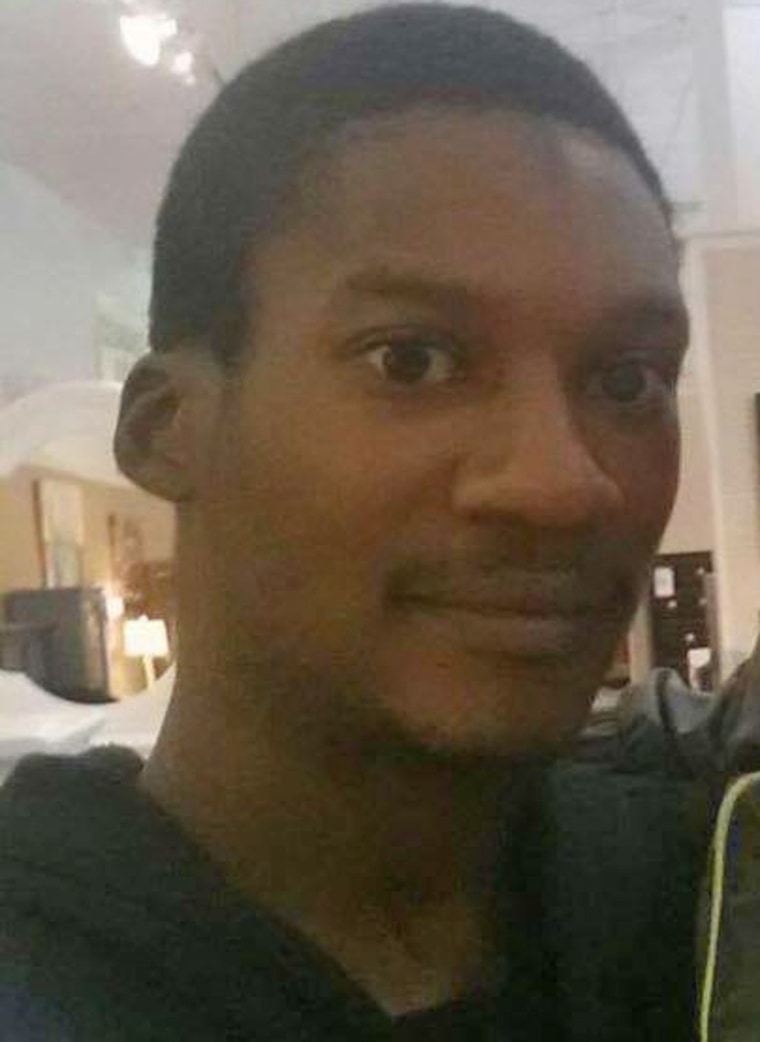The arrest of an alleged ISIS sympathizer in Rochester, New York, is the latest example of what researchers see as a major undercurrent in the cases of other young men who wanted to join the terror gang: Many have histories of mental illness and criminal behavior.
At least 10 of the 70 people charged with wanting to help ISIS over the last 20 months have criminal records and "more than a handful" have been diagnosed with mental illness and been treated with psychotropic drugs, said Karen Greenberg, director of Fordham University’s Center on National Security.
"In a number of the 70 ISIS cases, there is an intersection of factors including youth — 25 and under — with criminal records, diagnosed mental instability, sometimes medicated, and proclivity to violence," Greenberg said.
On Thursday, federal officials in Rochester announced charged against Emanuel Lutchman, 25, for allegedly plotting a New Year’s Eve machete and knife attack on diners at a local restaurant in the name of ISIS.
Lutchman, an ex-con and Muslim convert, was charged with attempting to provide material support to the terrorist group. He had served a five-year sentence in state prison for robbery and also had "mental hygiene" arrests, said prosecutors.
Lutchman's grandmother, Beverley Carridice, told NBC News that he had been plagued by psychiatric problems since childhood and had recently stabbed himself in the stomach during a suicide attempt. She said he had been prescribed unspecified psychiatric drugs but was not taking them when she last saw him in August.

The Fordham Center's review of court files — particularly defense motions — has found that several of those charged in other cases have been treated with Zoloft, an anti-depressant and social anxiety drug. At least one was taking Risperidol, mainly used to treat schizophrenia and bipolar disorder.
Greenberg noted the case of Nicolas Teausant, a Sacramento man who pleaded guilty earlier this month to one count of material support. His defense counsel at first succeeded in getting him declared incompetent because of mental incapacity, but later a federal judge ruled him competent to stand trial.
His lawyers claimed he had a mental illness that made him vulnerable to the informant used in the case that he had no real plans of joining ISIS. They Teausant, who is to be sentenced in March, had delusions that he was a second-degree Freemason and a proud member of the Army National Guard.
Mental illness has been an issue in numerous other cases:
- When Alex Ciccolo, 23, the son of a Boston police captain, was arrested July 4 for an ISIS-inspired plot, his father told investigators that he “had a long history of mental illness,” court documents said.

- Muslim convert Michael Zehaf-Bibeau, 32, had compiled a long criminal record before he shot and killed a Canadian soldier on Parliament Hill in Ottawa in 2014. He received a psychiatric evaluation after a 2011 arrest for robbery and uttering threats, and was expelled from a Vancouver mosque for odd behavior. Acquaintances described his behavior as erratic and questioned his mental health, and he was living in a homeless shelter at the time of the Ottawa attack.
- When 20-year-old Illinois man Mohammad Hamza Khan pleaded guilty to material support in October, the agreement required that he undergo ""psychological and violent extremism counseling" upon release from prison. He is set to be sentenced in June.
A report on lone-wolf terrorism published by the Georgetown University Security Studies Program in June noted that lone-wolf terrorists were “likely to suffer from some psychological disturbance,” and might seek extremist worldviews to give them a sense of identity.
“These new extreme ideologies,” said the study, “are frequently grounded in a religion that gives meaning to pain, provides a community and sense of self, and offers a system of behavior and identity, particularly appealing to psychologically traumatized individuals.”
Another study from 2013 said one main strain of lone wolf terrorists was made up of “individuals with a grievance and weapons experience who are social loners and often show signs of psychological disorder.”
Earlier this year, a top Scotland Yard official told a terrorism conference that it was no accident some of ISIS’ recruits have psychiatric problems.
Using social media, the group was actively targeting “the vulnerable, people with violent backgrounds, very young people and those with mental health issues,” said Assistant Commissioner Mark Rowley.
